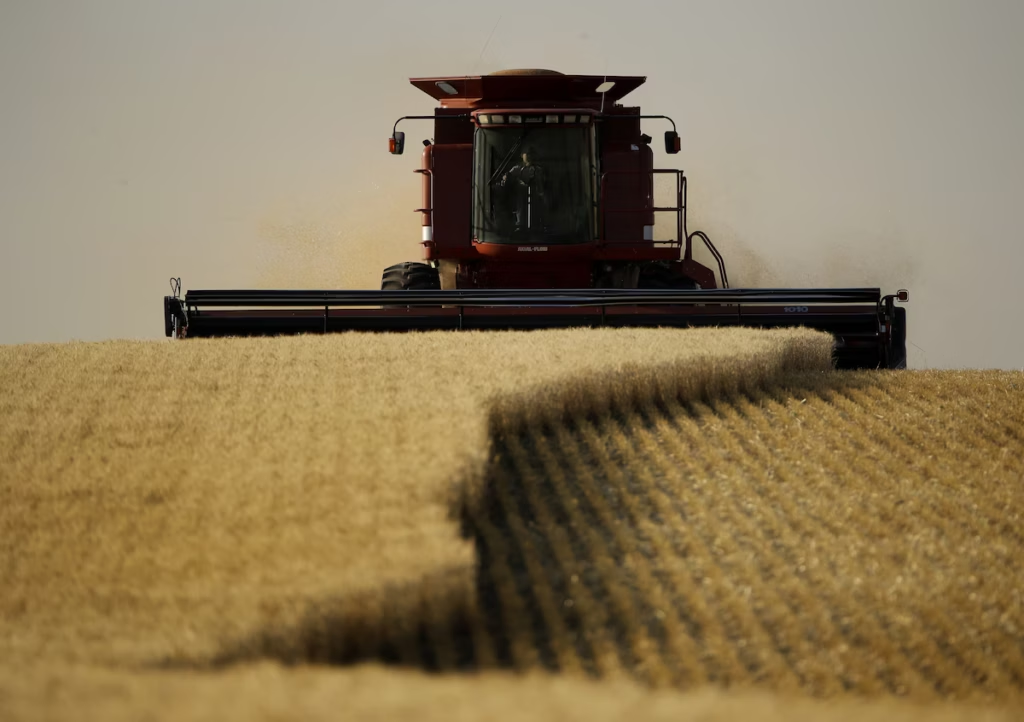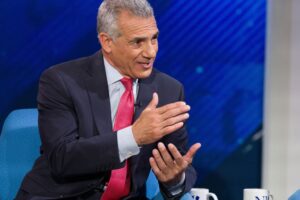USAID Cuts Threaten Louisiana Rice Farmers’ Global Food Aid Contributions
Louisiana’s rice farmers, integral to the state’s economy, face uncertainty as federal efforts to reduce the U.S. Agency of International Development (USAID) could disrupt vital food aid programs. These programs rely heavily on Louisiana-grown rice to support global initiatives.
Michael Fruge, owner of Parish Rice in Eunice and a second-generation farmer, highlighted the longstanding presence of USAID in agricultural discussions. “They talk about Mexico because it changes,” Fruge stated. “They talk about India because they put export bans on long grain rice. But food aid has just been there. It just hasn’t been talked about because it’s just there.”
The situation intensified when President Donald Trump’s administration sought to dismantle USAID, an agency that has been a cornerstone of U.S. food aid since 1968. Recently, Trump and Elon Musk initiated layoffs of thousands of USAID employees and halted numerous programs worldwide as part of a broad freeze on foreign assistance.
In a significant development, a federal judge issued a restraining order on Friday, temporarily halting the administration’s plan to reduce USAID’s workforce from 10,000 to fewer than 300 employees. This injunction follows a last-minute lawsuit filed by two unions aiming to protect the agency’s operations. Despite this legal action, the agency’s international aid programs, which provide billions of dollars to U.S. farms, remain suspended, posing potential challenges for Louisiana’s agricultural sector.
Louisiana’s rice production is crucial for programs like Food for Peace and McGovern-Dole International Food for Education and Child Nutrition. Rice from ports in Houston and New Orleans is distributed globally to countries including Haiti, Iraq, and Ukraine.
According to Michael Klein of the USA Rice Federation, food aid ranks among the top ten purchasers of rice in the United States. In 2024, USAID alone procured over $126 million worth of American rice, favored for its high caloric content and long shelf life.
Klein emphasized the significant role of Louisiana in rice exports, noting that approximately 75% of the state’s rice farming acreage is located in Acadia, Jeff Davis, Vermilion, Evangeline, and St. Landry parishes. “The reality is we just don’t even know the full extent of what is happening,” he said. “It’s concerning, but we just don’t know how it’s going to impact the industry as a whole or Louisiana specifically.”
Large rice milling operations in Louisiana, including Supreme Rice in Crowley and Farmers Rice Milling Company in Lake Charles, have benefited from USAID funding. However, David Warrington, CFO of Powell Group, which owns Farmers, confirmed that their company currently holds no contracts with USAID.
Former Secretary of Defense James Mattis was quoted by Supreme Rice CEO Bobby Hanks, who emphasized the importance of continuing food aid programs. “If goodwill programs like these are not fully funded, then I need to buy more ammunition,” Hanks remarked, as reported by a USA Rice press release.
State Representative Troy Romero of Jennings, the agricultural committee chair, expressed his commitment to protecting Louisiana rice farmers’ interests. While acknowledging the uncertainty, Romero is optimistic that essential food aid programs will remain funded. “When the Trump administration looked into USAID, they found that numerous dollars were going to some crazy things that conservatives may have a problem with,” he explained. “They’re going to reinstate the stuff that is really important. I cannot imagine that program—as good as it is—would be one of the ones that they would cut out.”
Given that roughly half of the rice produced in Louisiana and Arkansas is exported, and an estimated 5% to 10% is allocated to food aid, any major shifts in USAID’s operations could lead to market oversupply and reduced prices as producers seek new international buyers.
Despite concerns, some stakeholders recognize the need for reform within USAID. Michael Fruge acknowledged potential mismanagement but remains uncertain about the broader impact. “If Elon and President Trump are going to fix wasteful spending, how else do you go about it? Are they doing it the right way? I don’t know. But I would like to think they’re doing it the best way they know how,” he commented.





